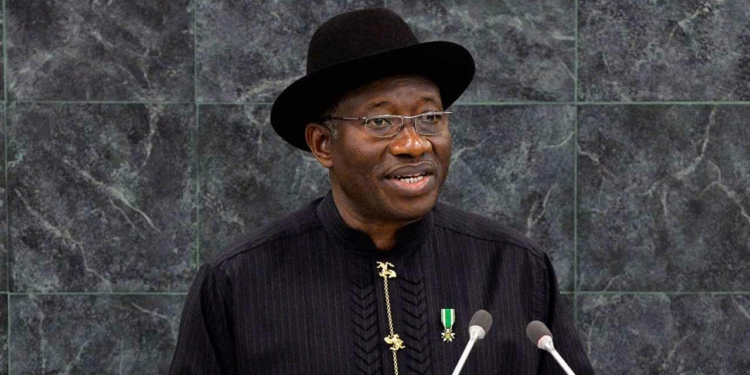-
Former President Jonathan recalled the 2015 election, where card readers rejected him and his family, causing tension
-
He emphasized the importance of independent electoral bodies and non-partisan security forces for credible elections
Former President Goodluck Jonathan has reflected on the 2015 general elections, where he lost to ex-President Muhammadu Buhari. He revealed that the card reader rejected him, his wife, and his mother, nearly causing nationwide unrest.
On Tuesday in Abuja at YIAGA Africa’s Reflection Conference on Democratic Elections in West Africa, Jonathan emphasized the critical role of electoral bodies and security agencies in election success.
The conference, themed Strengthening Democratic Processes in West Africa: Lessons from the 2024 Elections and Prospects for Future Elections, received support from the European Commission, ECOWAS, and GIZ.
Jonathan stressed the need for independent and impartial electoral commissions, alongside non-partisan security forces. According to him, these are fundamental to credible elections. He urged investment in strengthening these institutions to prevent political interference.
“I always believe that the success or failure of an election depends on two key agencies—the electoral management body and the police,” he said. “The stability of a democracy is closely linked to how elections are conducted and policed. If security agencies are unfair, election credibility and governance legitimacy can be undermined.”
Jonathan praised the increasing role of young people in elections, calling their involvement a crucial aspect of recent electoral reforms. He also highlighted the impact of technology in elections across West Africa, despite past challenges.
Recalling his 2015 experience humorously, he said, “When Jega introduced the card reader, it rejected me, my wife, and my mother. That moment nearly set Nigeria on fire.”
Despite this, he acknowledged advancements in electoral processes in Liberia, Senegal, and Ghana, strengthening democratic participation.
He commended high voter turnout and smooth power transitions in these countries, describing Senegal’s election as one of the best he had observed in Africa and beyond.
Delivering the keynote address, former INEC chairman Prof. Attahiru Jega acknowledged concerns about democratic setbacks in West Africa. However, he noted that citizens still demand accountable governance.
“Despite evidence of democratic decline, there remains a strong public desire for representative and responsible leadership,” Jega said. He urged citizens, civil society groups, and political actors to mobilize for credible democratic development.
Jega also recognized improvements in independent election management bodies (EMBs) across West Africa but emphasized the need for further reforms.
Yiaga Africa’s Executive Director, Samson Itodo, described the conference as a platform for key stakeholders to evaluate electoral reforms in West Africa.
He stressed the need for continuous efforts to ensure credible elections.
“The discussions aimed to analyze the 2024 elections, highlighting major challenges and opportunities for improvement,” Itodo stated.
The conference provided insights into strengthening democracy in West Africa, reinforcing the importance of transparent and fair electoral systems.






Discussion about this post